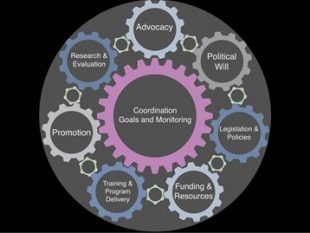 Why do we need to Become Breastfeeding Friendly in England? It’s a loaded question, implying that as a country we are unfriendly towards breastfeeding and that we need to become something that we are not already. The facts are that, despite the known health benefits of breastfeeding, we have one of the lowest breastfeeding rates in the world, in the UK as a whole only 0.5% of babies are being breastfed up to 1 year compared with 23% in Germany, 56% in Brazil and 99% in Senegal (Lancet series, Victora et al. 2016). We still don’t understand everything about why our rates are lower than other countries, but we do know that its time to stop blaming individual mothers and to find ways to enable, support and protect the breastfeeding environment in England so that babies can have the start in life that being breastfed and human milk provides.
Why do we need to Become Breastfeeding Friendly in England? It’s a loaded question, implying that as a country we are unfriendly towards breastfeeding and that we need to become something that we are not already. The facts are that, despite the known health benefits of breastfeeding, we have one of the lowest breastfeeding rates in the world, in the UK as a whole only 0.5% of babies are being breastfed up to 1 year compared with 23% in Germany, 56% in Brazil and 99% in Senegal (Lancet series, Victora et al. 2016). We still don’t understand everything about why our rates are lower than other countries, but we do know that its time to stop blaming individual mothers and to find ways to enable, support and protect the breastfeeding environment in England so that babies can have the start in life that being breastfed and human milk provides.
The Becoming Breastfeeding Friendly (BBF) study is a collaboration between Yale School of Public Health, the University of Kent and Public Health England (as well as the public health departments of Wales and Scotland) which for the first time brings together academics, policy makers, non-governmental organisations, breastfeeding organisations representing mothers and health professionals to find solutions that will tackle the issues to create a more breastfeeding friendly community, like being able to breastfeed or express milk without worry in the workplace, providing better training for all health professionals to support mothers, ensuring we have sound data to measure effectiveness, and funding to provide community resources that support mothers and babies to enjoy the nutrition and close relationship that breastfeeding brings.
The aim of BBF is to work together at country level to assess against a set of international benchmarks where England (Wales, and Scotland) currently ‘sit’ in relation to breastfeeding policy, data and activity. The 54 benchmark statements are designed around a set of interlocking gears, the idea behind the model (see below) is that as a smooth running whole system each of the eight gears will drive each other and turn the co-ordination, goals and monitoring gear at the hub.

The collaborating team are currently collecting the data, the evidence, knowledge and expertise that already exists to identify where the gaps are in the system, what the key issues are that prevent the gears from turning and how government policy, public health and health practitioners, non-government organisations and parents can work strategically to implement actions that will promote a breastfeeding friendly environment for all mothers and babies. Key recommendations for government will be reported in the early part of 2019.
Yale School of Public Health Becoming Breastfeeding Friendly website
Sally Kendall MBE is Professor of Community Nursing and Public Health, Centre for Health Services Studies, University of Kent
UK PI Becoming Breastfeeding Friendly
References
Victora, C.G., Bahl, R., Barros, A.J., França, G.V., Horton, S., Krasevec, J., Murch, S., Sankar, M.J., Walker, N. and Rollins, N.C., 2016. Breastfeeding in the 21st century: epidemiology, mechanisms, and lifelong effect. The Lancet, 387(10017), pp.475-490.
BBF Gear model, Pérez‐Escamilla, R., Hromi‐Fiedler, A.J., Gubert, M.B., Doucet, K., Meyers, S. and dos Santos Buccini, G., 2018. Becoming Breastfeeding Friendly Index: Development and application for scaling‐up breastfeeding programmes globally. Maternal & child nutrition, p.e12596.

1 comment
Comment by Allyson Dye posted on
The BBF Gear Model looks impressive and addresses some issues however would like to see more emphasis on direct, practical Breast Feeding Support for mother's and their family. After all, the rates will improve if the experience is supported.
From my previous role as a Breast Feeding Support Worker, I quickly learned there is no right & wrong in breast feeding, more about finding what works for that particular mum/baby, everybody is different. With the correct non judgemental support, mothers can make informed choices. Either as a new mum or experienced mum, nobody wants to let their child down by setting themselves up for a fall, so often it is easier to choose formula. More community based Support Workers are required at the frontline.